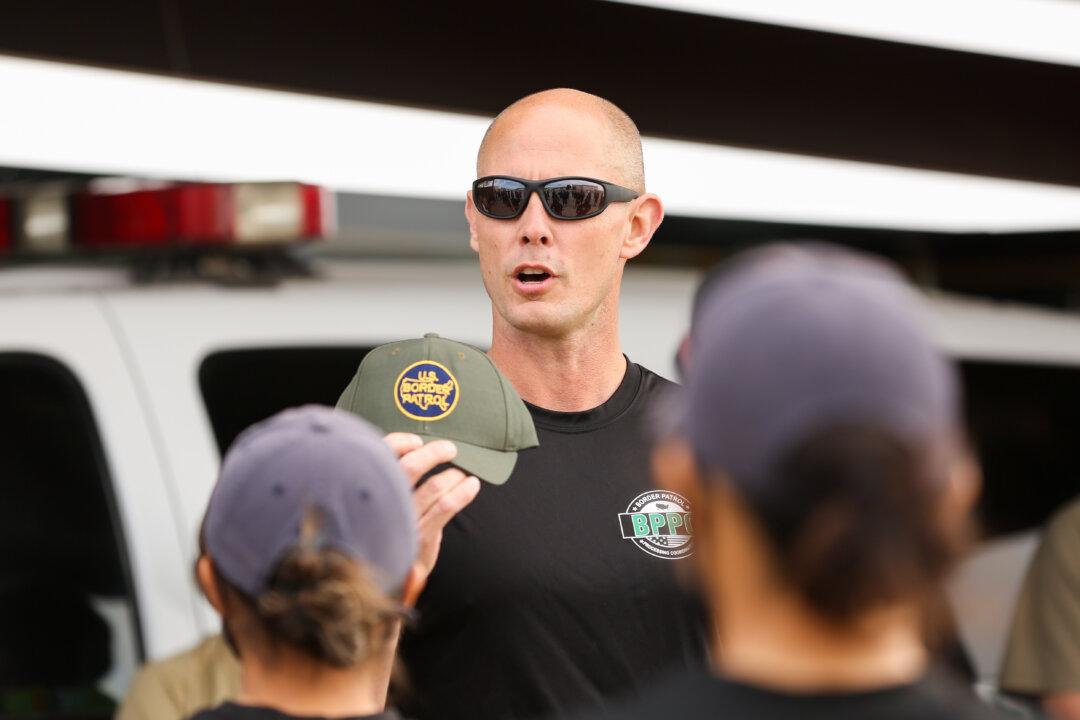ARTESIA, N.M.—As illegal border crossings continue to escalate, a crop of newly trained processing coordinators are being sent to El Paso and the Rio Grande Valley in Texas to help get Border Patrol agents back out on the line.
The 39 Border Patrol processing coordinators spent eight weeks training in first aid, processing, transportation, basic firearms, detainee care, and other skills. The new role was developed under the Trump administration in response to large numbers of Border Patrol agents being pulled away from border security to deal with humanitarian issues.





